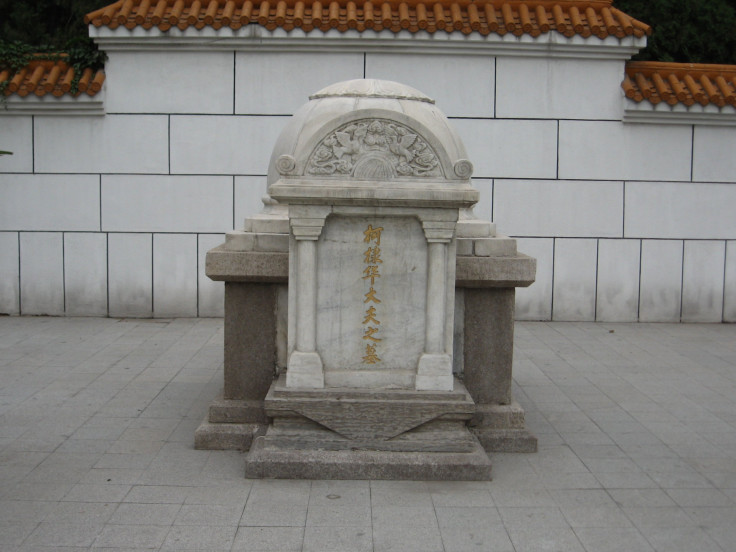Dr. Kotnis: The Indian Physician Who Gave His Life For China And Remains An Icon To The Chinese

China’s Premier Li Keqiang, on a state visit to India this week, paid homage to a doctor who is one of the most revered foreigners in Chinese history.
Li, following a tradition kept by all visiting leaders from Beijing since 1950, visited with family members of Dr. Dwarkanath Shantaram Kotnis in Mumbai (formerly Bombay).
Largely unknown in the West, Dr. Kotnis was an Indian physician who died while treating Chinese soldiers during the second China-Japan war in 1942 at the age of 32.
Kotnis, a native of Solapur in Maharashtra, was one of five Indian doctors who volunteered to serve in China after the Japanese invaded the country in 1937. He answered the call of Jawaharlal Nehru, then a leader of the Congress Party and India's future first prime minister.
Kotnis, who suffered under unbearable conditions and hardship on the frontlines in China (primarily in Hankou, Yichang and Chongqing), served for four years treating the sick and wounded, saving countless Chinese lives, then succumbing himself to malnutrition and epilepsy.
His life story was immortalized in the classic 1946 Indian film “Dr. Kotnis Ki Amar Kahani” (”The Eternal Tale of Dr. Kotnis”) by the legendary director V. Shantaram.
In China, Kotnis has been revered to the present day and remains a symbol of Indian-Chinese friendship, in stark contrast to the troubled relations between the two Asian giants over the past 65 years.
The Chinese have built statues (including a prominent one in Shijiazhuang, in central China's Hebei province) and hospitals in his name and issued stamps in his honor.
The Kotnis family even possesses a scroll in which Chairman Mao wrote: “He cured the wounded and saved many of our comrades from death. He will live forever in the hearts of the revolutionary Chinese people.”
Mao also reportedly said of Kotnis: "The army has lost of a helping hand, the nation a friend. Let us always bear in mind his international spirit.”
More than 70 years after his passing, Kotnis remains an idol in China, but his fame in India has greatly diminished.
In 2009, an Internet poll organized by the China Radio International (the state-owned English radio station in Beijing) revealed that the doctor was voted one of the "top 10 foreigners" of the past century.
In Mumbai on Tuesday, Premier Li met with Kotnis' 92-year-old sister, Manorama, and grandnieces and nephews, Sanika Jain, Abhay Jain, Kishore Khot and Shalmali Borkar – all of whom are doctors. Another sister, Vatsala Kotnis, who had met with prior Chinese visitors, died last year.
"Premier Li delivered a warm speech, saying how the Chinese will always cherish the memory of Dr. Kotnis,” Borkar told the Times of India. “He said a true friend was one who stood by you in times of adversity, and Dr. Kotnis had proved his loyalty by helping them face the Japanese aggression.”
Prior to the meeting with Li, Manorama herself told Indian Express that “it's a proud moment for us and a rare honor being bestowed upon the family and my brother," referring to Li’s visit.
"In 2006, we met the then-President Hu Jintao. We are overwhelmed that even after so many years; my brother is remembered and loved by the Chinese. … I have been to China at least four times and each time, I was received with a lot of respect and warmth.”
Kotnis has no direct descendants. While in China, he fell in love with a Chinese nurse named Quo Qinglan and married her in 1941. They had a son named Ing Hwa who died as a young man.
Quo, who remained in China after the war ended, passed away last year in the city of Dalian at the age of 96. Quo herself was honored and feted by Indian officials whenever they visited China.
Dr. Srikanth Kondapalli, professor in Chinese Studies at Jawaharlal Nehru University, explained why Dr. Kotnis remains a powerful figure in China to this very day, even as India and China rush to build nuclear arms, argue over border issues and eye each other warily. (The two counties even fought a brief war in 1962).
"By visiting the [Kotnis] family, they [Chinese leaders] are harking back to the solidarity between the two countries when both India and China were fighting colonialism and imperialism," Kondapalli told the BBC.
But Ravi Dharon, a researcher with the Indian National Institute of Immunology, lamented to China Daily that younger Indians know little or nothing about Dr. Kotnis.
"He has made great contributions to the friendship between two nations,” he said. “It is a pity that the younger generations do not know much about him."
© Copyright IBTimes 2024. All rights reserved.





















